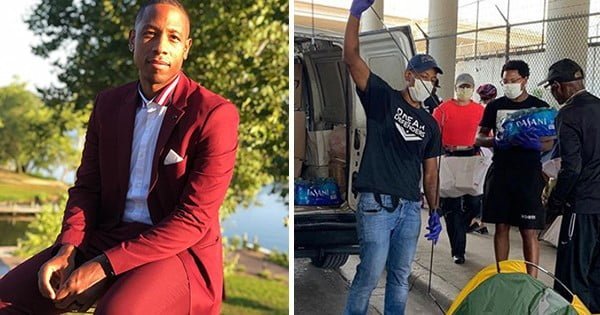Miami, FL — Dr. Armen Henderson, an internist at the University of Miami Health System, has been making efforts to help homeless people get tested for the coronavirus as he believes that it is “essential to protecting the public’s health.” He is also working with a number of community volunteers to provide the essential needs of the homeless during the pandemic.
Homeless people, including those who are elderly and with compromised immune systems, are known to be at a higher risk of being infected with COVID-19. While authorities advised people to stay at home to prevent the spread of the virus, homeless people had to sleep on the streets and use public facilities.
Henderson saw this difficult situation and he is trying to alleviate it. He first went to the homeless in Overtown neighborhood in Miami equipped with a medical mask, face shield, and gloves and conducted COVID-19 testing to people.
Most recently, Henderson said he had taken swab samples from 15 people which he would send to the lab for testing. He collected their contact information so he would be able to inform them of the results once available after a few days.
More than that, he also partnered with organizations such as The Smile Trust and Dream Defenders to provide food, hand sanitizers, and camping tents. Showering Love, a nonprofit, also joined in to provide mobile showers and clothing.
Volunteers noticed that homeless people are still skeptical of the pandemic. It shows the importance to inform the homeless people how serious the coronavirus threat is so they would really do the necessary practices to prevent being infected and spreading the virus.
Henderson also hopes to bring more camping tents and conduct more COVID-19 tests. He calls for the local government to step up in assisting homeless people during the pandemic as the whole community is actually at risk. “Just test everybody, especially people who are vulnerable,” Henderson told the Miami Herald. “These people are the most vulnerable. They’re also at highest risk for getting the virus and for spreading it.”

